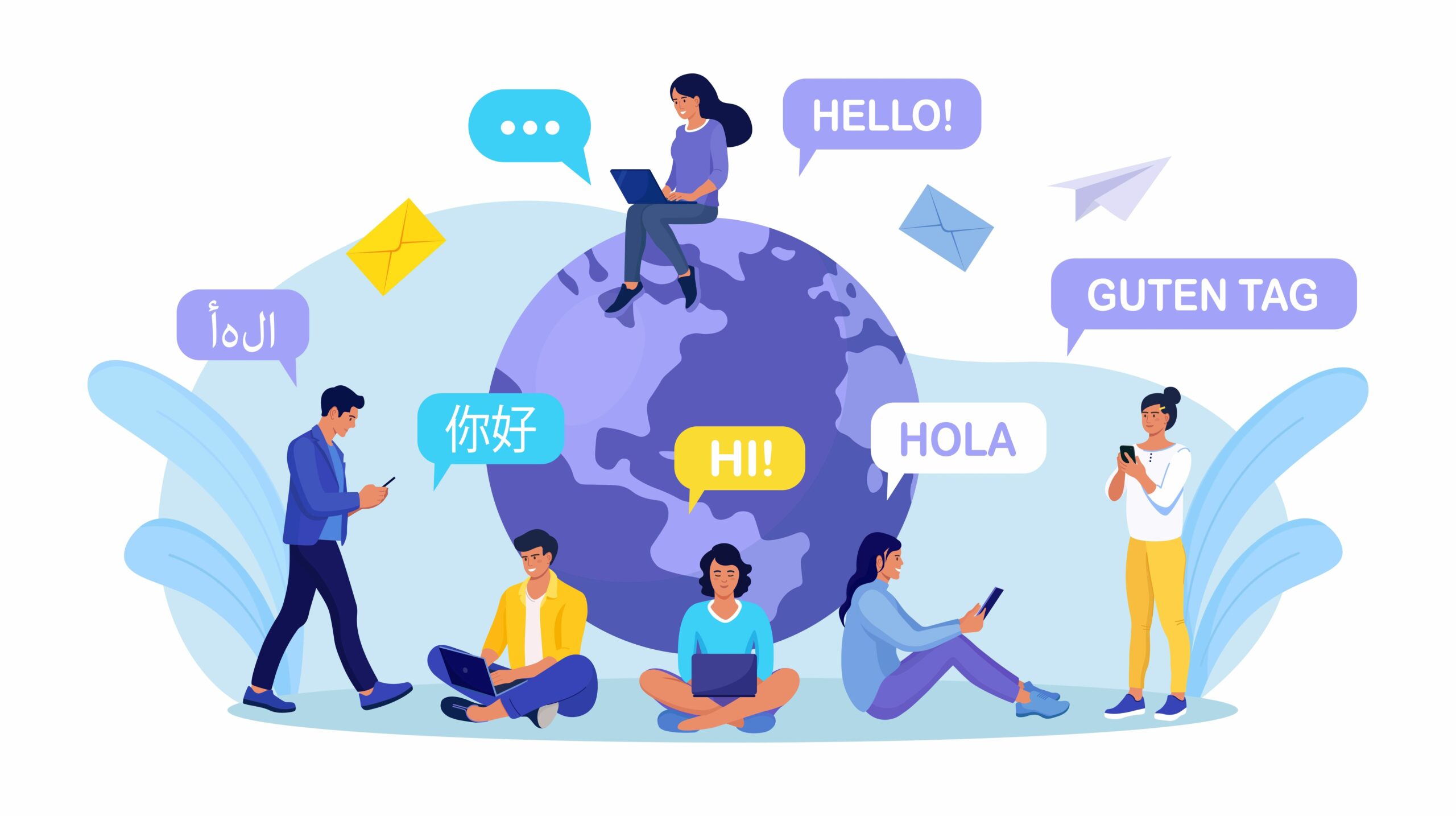My most recent foreign language attempt has been to learn Japanese for our upcoming trip in May. First I tried with Duolingo. The first unit (6 lessons) covers food. Specifically, how to order green tea, water, rice and sushi. The second unit (another 6 lessons) covered how to describe people. “She is a cool lawyer”, “He is a nice teacher”, and so on.
Finally by the third unit (and 13th lesson) we got to ‘Hello’! What is the likelihood of arriving in Japan for a holiday and needing to describe a lawyer as nice before saying so much as ‘Hello’ to anyone?
Duolingo’s Italian offering is not a lot better. For the longest time, my husband had committed to memory choice phrases like “The men write in the sugar” (“Gli uomini scrivono nello zucchero”, in case you were wondering) and “I have a snake in my boots” (“Io ho una serpente nello stivali”) but he could not order a coffee or a slice of pizza. I have been to Italy several times. Number of coffees ordered: More than I can count. Number of snakes seen, in my boots or otherwise: Zero. Zip. Zilch. Nada.
I tried Babbel for French before going to Noumea. “The girls live in Montreal”. Cool. I don’t live there. I have never been to Montreal and I don’t actually know anyone who lives there. And I really struggled with pronunciation of the word dix (the number 10). I tried dozens of times but I could never get it right. Out of curiosity, while doing the exercise to pronounce ‘dix’ I played the official google translate pronunciation for the Babbel app and it still would not accept it, so I don’t think that’s on me.
In more positive news, I started trying Busuu for Japanese recently and I think it is very promising. ‘Hello’ is the very first word you learn!

It even gives you explanations of when you would use different phrases and the meaning behind some of them. For example, you would say ‘Hajimemashite’ or ‘Nice to meet you’ when you are first introduced to someone, and then ‘Douzo yoroshiku’ after the introductions are complete. It essentially also means ‘Nice to meet you’ but literally translated it means ‘Please be nice to me’.
Are languages apps pointless then?
Not completely. Because they are on your phone, there are very good at getting your attention so you practice frequently. I also find Duolingo is fine if you need to refresh a language you have already studied. I studied Italian so the fact that Duolingo does not explain the grammar or structure did not bother me. I already understood it, I only needed it to refresh my memory.
My husband on the other hand has found learning Italian on Duolingo very challenging. There is no explanation of how or why for example the ends of words change for plurals, or how to conjugate verbs. That is a lot of complex information to be expected to just memorise without explanation or understanding. I tried to teach him these things myself. Neither of us had the patience for that.
Seriously, though. Where are the language apps for travellers? I need to order espresso and croissants, or a bottle of wine at dinner. Never in my life have I ever needed to announce to anyone “The men write in the sugar”. In fact, the randomness of the phrases made it harder for me help my husband learn. He would ask me what certain phrases meant, and then recite something so random like “I eat 4 lemons for breakfast each day”. It would sound like such nonsense I was always convinced I had mistranslated it.
If you want a really good laugh about the impractical phrases you learn while studying a new language, check out this video from comedian Eddie Izzard about learning French.
I wonder if these language apps are all written by very self-centered people, who think it’s perfectly normal to go around announcing to strangers where you live, what you do for work and how many siblings you have, instead of more banal phrases, like, oh, I don’t know…”We’d like a table for two”, or “Where is the bathroom, please”.
I confess, despite its shortcomings, I am still doing Duolingo anyway. I have a 431 day streak. I just can’t walk away from that. Plus my husband and I both use it, so we do friends quests together. Which brings out both our commitment to each other and our competitiveness against each other. Well played, Duo! Well played.
Update, 25-May-2025
I take back all the nice things I said earlier about Busuu. I kept going with it for a while and it became just as useless as Duolingo. “He is a salaryman”. “She is a professor”. “I like to cut myself”. OK, I made that last one up, but it is entirely plausible.
So I went back to Duolingo, because that’s where my longest streak of useless learning is. Currently 515 days. I managed to finish Section 1 of Japanese on Duolingo before going to Japan. I learned nothing useful. But it did give me access to see what was included in Section 2. You have to get up to Unit 30 to learn about public transport, Unit 34 covers eating in a restaurant and Unit 35 is all about how to communicate at a hotel!
Why do these things all come after learning how to announce ‘she is a cool lawyer’???
The units that come before all the useful things travellers actually need include:
- Talk about hobbies
- Describe your routine
- Talk about interests
- Describe your home
- Describe your family
Is it just me or do the people who make these apps sound desperately self-centred?
In the end I gave up on using the language learning apps. Instead I thought of the phrases I would actually need (“2 coffees please”, “This is the best sashimi I have ever had”, “where are the bathrooms”) and created my own hand-written flashcards. I’ll post a list of useful phrases soon.
